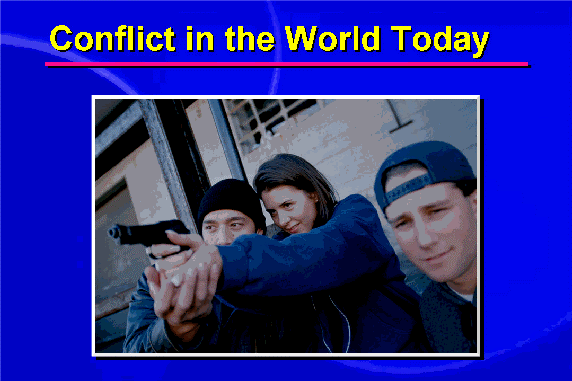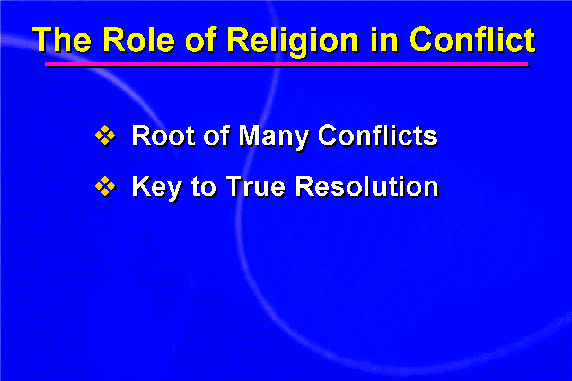![]()
Creating a World of Peace - The Thought and Works of Sun Myung Moon by Joon Ho Seuk
|
|
Creating a World of Peace - The Thought and Works of Sun Myung Moon by Joon Ho Seuk |
Since the tragic events of September 11, 2001, it seems that the entire world has been placed on a heightened level of tension, rivaling or even surpassing that of the Cold War period. Although the threat of nuclear annihilation hung heavily over the world during the standoff between the democratic and communist worlds, there seemed to be a certain stability and predictability of events during those years. Today's violence seems both more random and intractable, the expression of antagonisms that in many cases stretch back innumerable generations.

As our world grows ever smaller, news of terrorist acts and other acts of violence affect us more and more personally, all the more so as we realize that in today's world even small groups may be able to gain access to weapons of mass destruction. Efforts at nonproliferation of nuclear weapons appear to be more and more difficult to control and enforce. It is evident that traditional methods of diplomacy, political maneuvering and military force are no longer adequate to meet the challenges facing us. Rather we are being forced to deal with core issues: Why do human beings have this aggressive impulse? What is the fundamental cause of human conflict? Is there any realistic hope to be able to resolve conflicts? Are there any examples we can point to as good models to emulate? If so, what strategies were used?

As we seek to grapple with core issues, we must also ask what role religion has to play in resolving conflicts. To some, this may sound odd, as religious differences have been one of the main pretexts for conflicts down through history to the present day. If we look at the most pressing conflicts in recent history, whether the situation in the Middle East, Chechnya, India, Yugoslavia or Northern Ireland, in each instance the antagonists come from different religious backgrounds. Terrorism primarily feeds on the tremendous resentment found in much of the Muslim world towards the Christian and Jewish worlds. The United Nations, which has no mechanism for allowing the voice of religion to be heard, is finding itself inadequate to the task of dealing with the crises confronting us in the early 21st century.
Precisely because religion is at the root of many of these problems, it cannot be ignored if we are to find true reconciliation. This is why in recent years Reverend Moon has proposed that the UN establish an inter-religious council within its structure as a venue for dialog among the world religions and as a prelude for reconciliation among their followers.
From "Renewing the United Nations to Build Lasting Peace," New York, NY, August 18, 2001
The time has come for religion to renew itself and manifest true leadership in the world.
People of faith should feel responsible for the plight, suffering and injustices experienced by the world's peoples. Religious people have not been good examples in the practice of love and living for the sake of others, and for this reason should engage in deep self-reflection. It is time for religious people to repent for their preoccupation with individual salvation and narrow denominational interests. Such practices have prevented religious bodies from giving their utmost to the cause of world salvation. Our age, more than any other, demands that we go beyond faith and the interests of particular religions, and put our love and ideals into practice for the sake of the world.
All people of faith must become one in heart in order to give full expression, in both words and actions, to God's passionate desire for humanity's restoration and peace. World peace can be fully accomplished only when the wisdom and efforts of the world's religious leaders, who represent the internal concerns of the mind and conscience, work cooperatively and respectfully with national leaders who have much practical wisdom and worldly experience about the external reality or "body." In this light, it is time for us to give serious consideration even to the prospect of restructuring the United Nations.
The existing United Nations structure, composed of national representatives, may be regarded as a congress where the interests of each member nation are represented. However, I submit that serious consideration should be given to forming a religious assembly, or council of religious representatives within the structure of the United Nations. This assembly or council would consist of respected spiritual leaders in fields such as religion, culture and education.
Of course, the members of this inter-religious assembly will need to have demonstrated an ability to transcend the limited interests of individual nations and to speak for the concerns of the entire world and humanity at large.